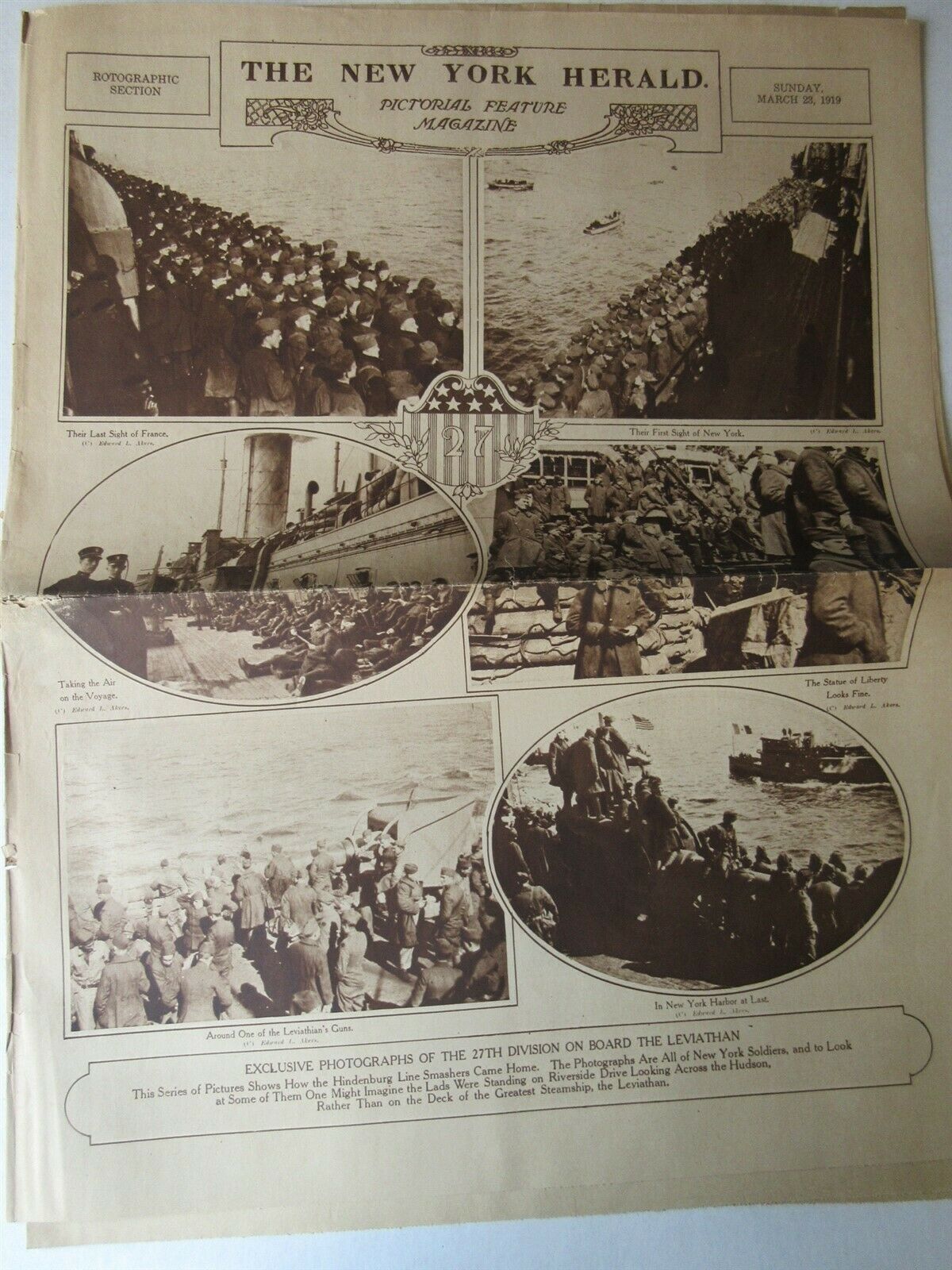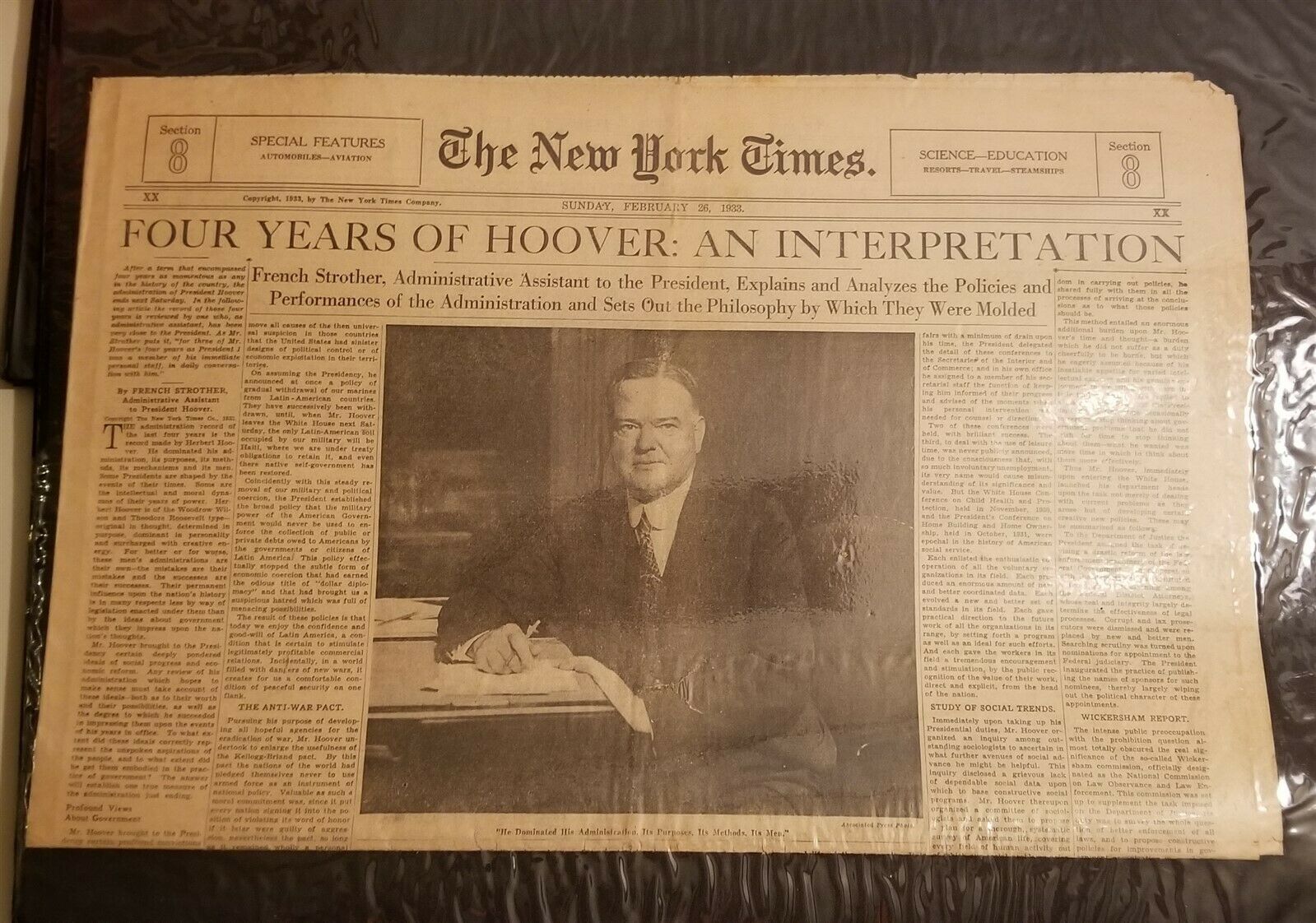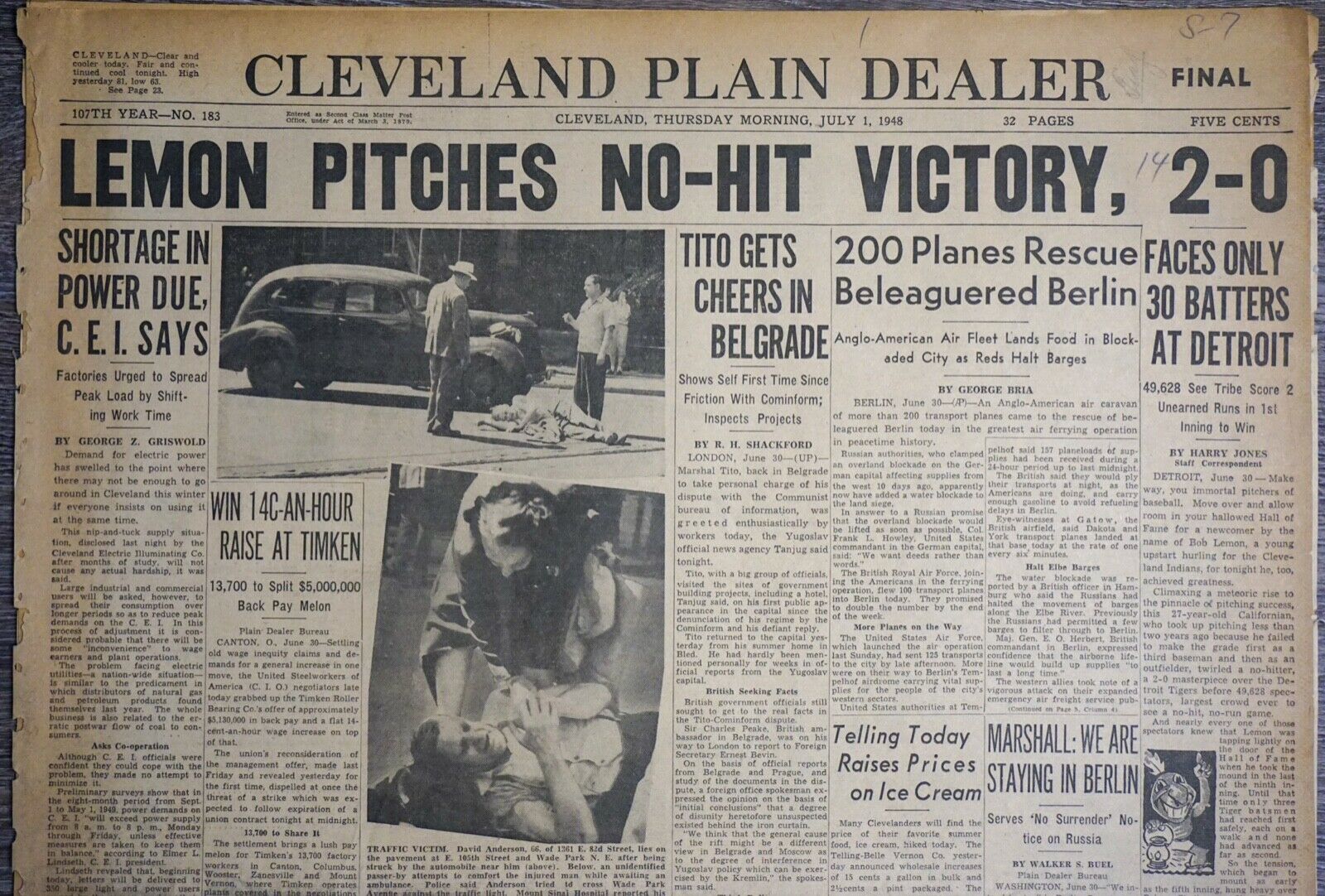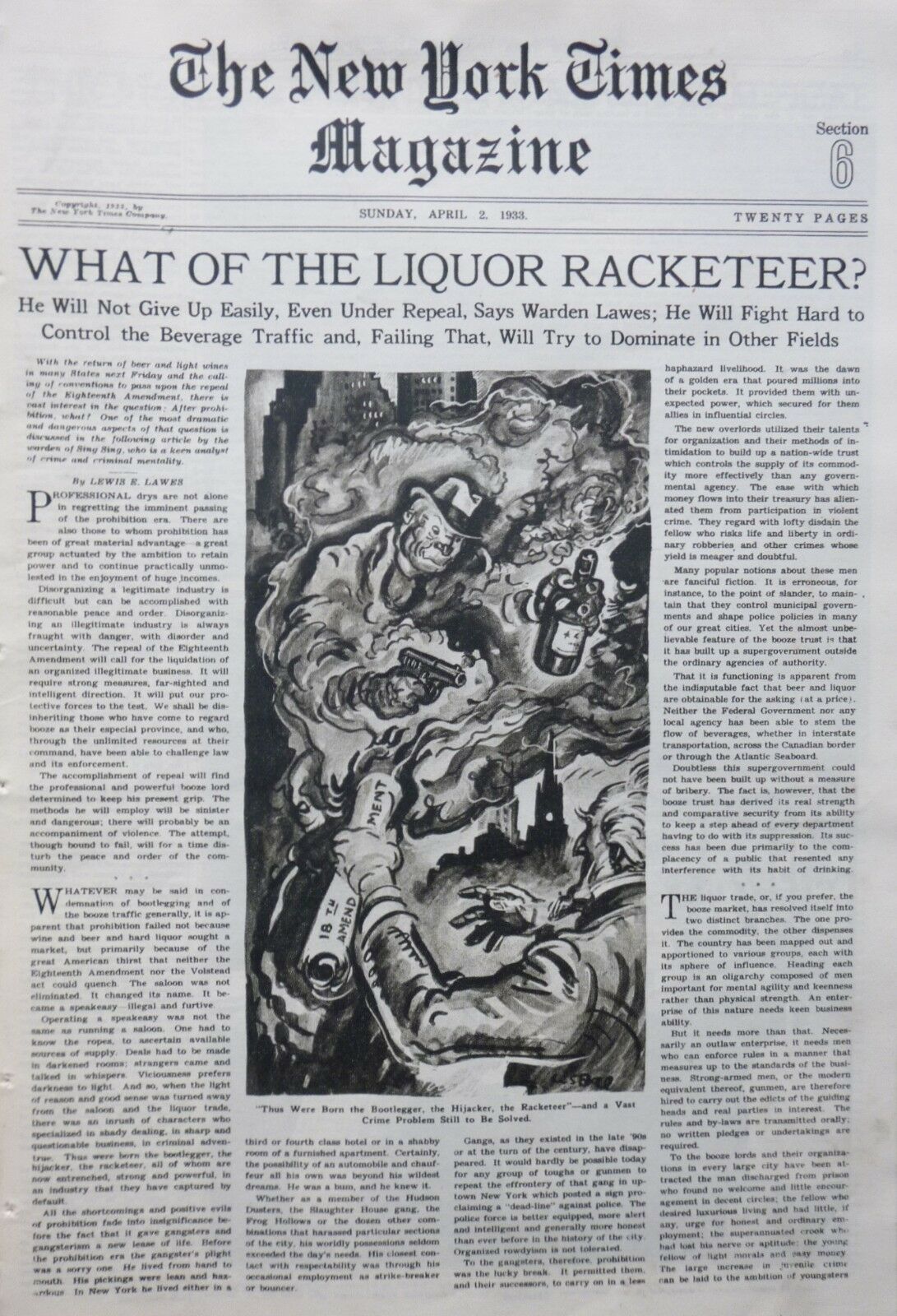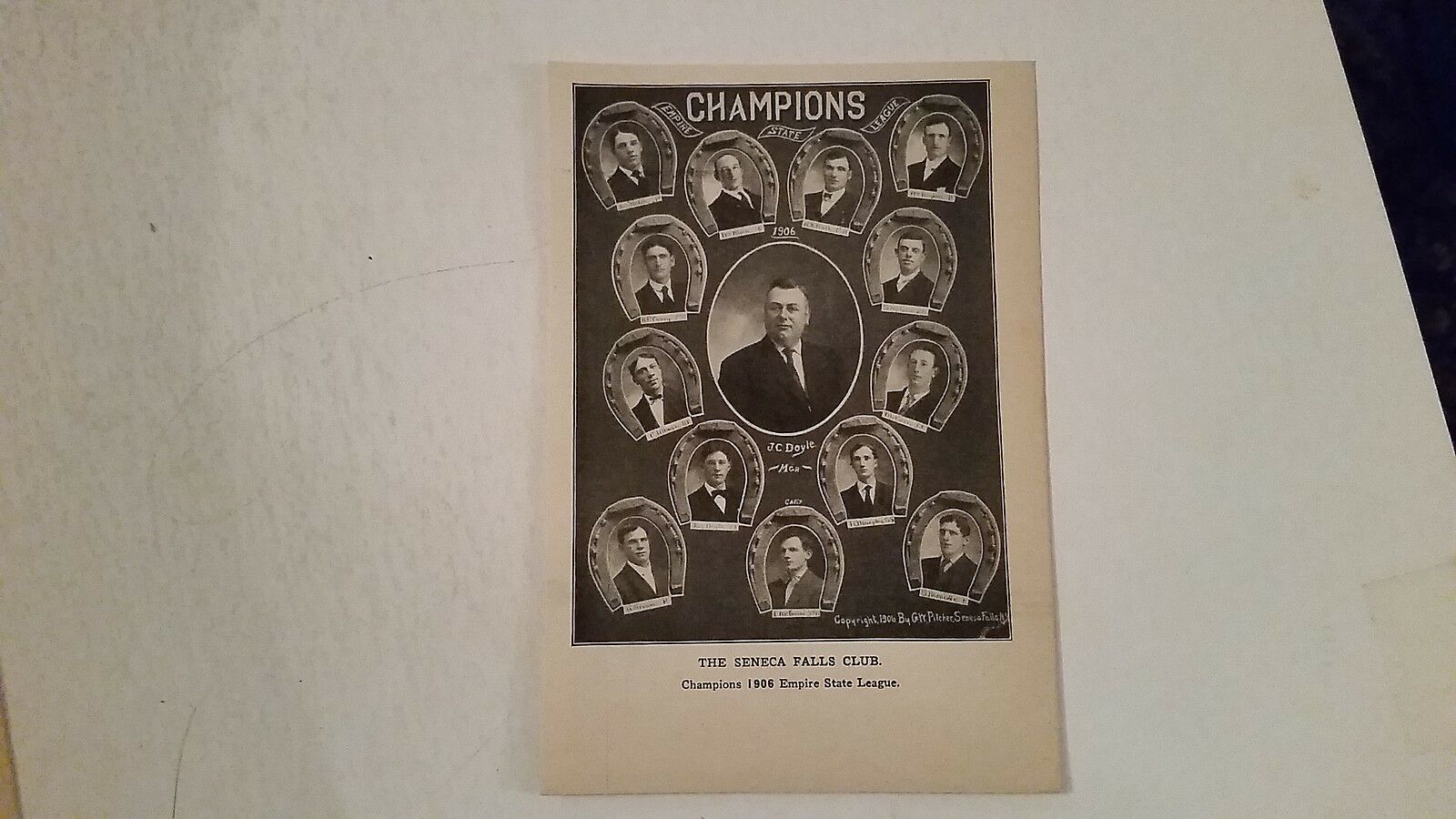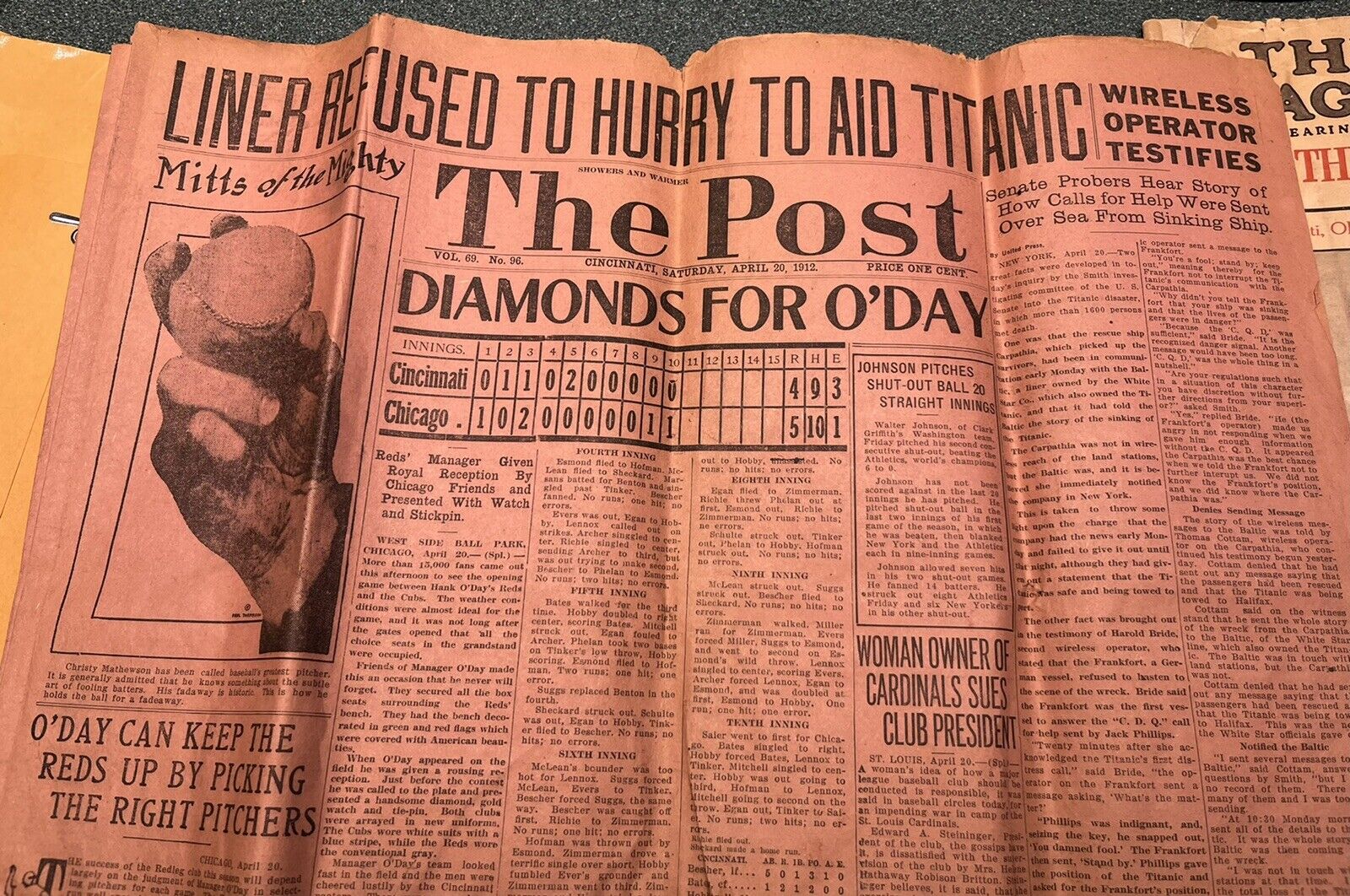-40%
1915 hdlne newspaper Judaica LEO FRANK DEATH SENTENCE COMMUTED to LIFE in PRISON
$ 18.48
- Description
- Size Guide
Description
Best 1915dislay headline newspaper GEORGIA GOVERNOR Jack Slayton commutes LEO FRANK 's DEATH SENTENCE to Life in Prison -inv # 7M-219
Please visit our EBAY STORE for THOUSANDS of HISTORICAL NEWSPAPERS on sale or at auction.
SEE PHOTO----- COMPLETE, ORIGINAL NEWSPAPER, the
Chicago Tribune
(IL) dated June 21, 1915.
This newspaper contains a bold banner headline and long report of
Georgia Governor JACK SLAYTON commuting the DEATH SENTENCE of LEO FRANK to life in prison
.
This is one of the BEST display newspapers I have seen with the commutation of LEO FRANK 's death sentence to life in prison.
Leo Max Frank (April 17, 1884 – August 17, 1915) was an American factory superintendent who was convicted in 1913 of the murder of a 13-year-old employee, Mary Phagan, in Atlanta, Georgia. His trial, conviction, and appeals attracted national attention. His lynching two years later, in response to the commutation of his death sentence, became the focus of social, regional, political, and racial concerns, particularly regarding antisemitism. Today, the consensus of researchers on the subject holds that Frank was wrongly convicted.
Born to a Jewish-American family in Texas, Frank was raised in New York and earned a degree in mechanical engineering from Cornell University before moving to Atlanta in 1908. Marrying in 1910, he involved himself with the city's Jewish community and was elected president of the Atlanta chapter of the B'nai B'rith, a Jewish fraternal organization, in 1912. Although antisemitism was not locally common, there were growing concerns regarding child labor at factories owned by members of the Jewish community. One of these children was Mary Phagan, who worked at the National Pencil Company where Frank was director. The girl was strangled on April 26, 1913, and found dead in the factory's cellar the next morning. Two notes, made to look as if she had written them, were found beside her body. Based on the mention of a "night witch", they implicated the night watchman, Newt Lee. Over the course of their investigations, the police arrested several men, including Lee, Frank, and Jim Conley, a janitor at the factory.
On May 24, 1913, Frank was indicted on a charge of murder and the case opened at Fulton County Superior Court on July 28. The prosecution relied heavily on the testimony of Conley, who described himself as an accomplice to the murder, and who the defense at the trial argued was in fact the perpetrator of the murder. A guilty verdict was announced on August 25. Frank and his lawyers made a series of unsuccessful appeals; their final appeal to the Supreme Court of the United States failed in April 1915. Considering arguments from both sides as well as evidence not available at trial, Governor John M. Slaton commuted Frank's sentence from capital punishment to life imprisonment.
The case attracted national press and many reporters deemed the conviction a travesty. Within Georgia, this outside criticism fueled antisemitism and hatred toward Frank. On August 16, 1915, he was kidnapped from prison by a group of armed men who were infuriated by the governor's decision, and lynched at Marietta, Mary Phagan's hometown, the next morning. The new governor vowed to punish the lynchers, who included prominent Marietta citizens, but nobody was charged. In 1986, Frank was posthumously pardoned by the Georgia State Board of Pardons and Paroles, although not officially absolved of the crime. Most researchers today agree that Conley was likely the murderer.
John Marshall "Jack" Slaton (December 25, 1866
– January 11, 1955) served two non-consecutive terms as the 60th Governor of Georgia. His political career was ended in 1915 after he commuted the death penalty sentence of Atlanta factory boss Leo Frank, who had been convicted for the murder of a teenage girl employee. Because of Slaton's law firm partnership with Frank’s defense counsel, claims were made that Slaton's involvement raised a conflict of interest. Soon after Slaton's action, Frank was lynched. After Slaton's term as governor ended, he and his wife left the state for a decade.
In 1915, Slaton commuted the sentence for Leo Frank from death to life imprisonment. "I can endure misconstruction, abuse and condemnation," Slaton said, "but I cannot stand the constant companionship of an accusing conscience which would remind me that I, as governor of Georgia, failed to do what I thought to be right.... It means that I must live in obscurity the rest of my days, but I would rather be plowing in a field than to feel that I had that blood on my hands."
Because of the almost universal hostility towards Leo Frank by the general public in Georgia, Governor Slaton's decision to commute his death sentence was widely viewed as interference. Public disapproval of Slaton persisted for a long time afterwards. Sparing Frank's life had the effect of permanently ending Slaton's political career, just as Slaton himself had predicted.
Some viewed the commutation by Slaton as a conflict of interest, as Slaton was a law partner of Frank's lead defense counsel. Slaton's actions led to threats of mob violence against the governor, and the Georgia National Guard and local police were enlisted for protection.
Fear of retaliation prompted Slaton and his wife to move out of Georgia after his term as governor ended. They did not return to the state for a decade.
Good condition. This listing includes the complete entire original newspaper, NOT just a clipping or a page of it. STEPHEN A. GOLDMAN HISTORICAL NEWSPAPERS stands behind all of the items that we sell with a no questions asked, money back guarantee. Every item we sell is an original newspaper printed on the date indicated at the beginning of its description. U.S. buyers pay priority mail postage which includes waterproof plastic and a heavy cardboard flat to protect your purchase from damage in the mail. International postage is quoted when we are informed as to where the package is to be sent. We do combine postage (to reduce postage costs) for multiple purchases sent in the same package.
We accept payment by PAYPAL as well as by CREDIT CARD (Visa and Master Card).
We list thousands of rare newspapers with dates from 1570 through 2004 on Ebay each week. This is truly SIX CENTURIES OF HISTORY that YOU CAN OWN!
Stephen A. Goldman Historical Newspapers has been in the business of buying and selling historical newspapers for over 45 years. Dr. Goldman is a consultant to the Freedom Forum Newseum and a member of the American Antiquarian Society. You can buy with confidence from us, knowing that we stand behind all of our historical items with a 100% money back guarantee. Let our 45+ years of experience work for YOU ! We have hundreds of thousands of historical newspapers (and their very early precursors) for sale.


